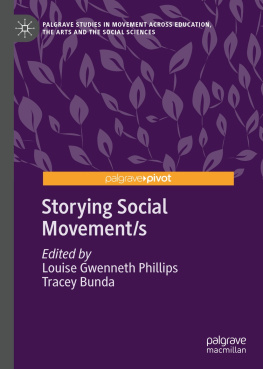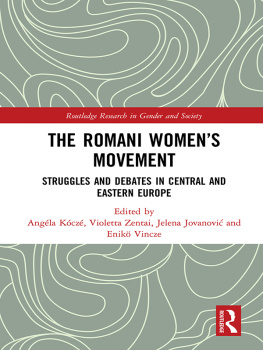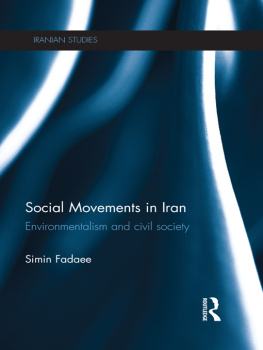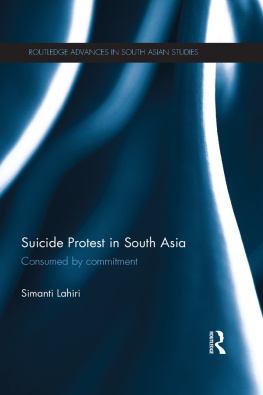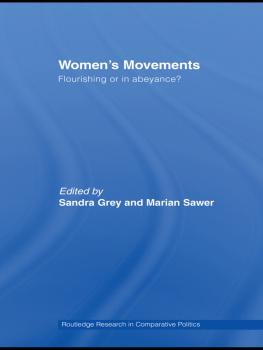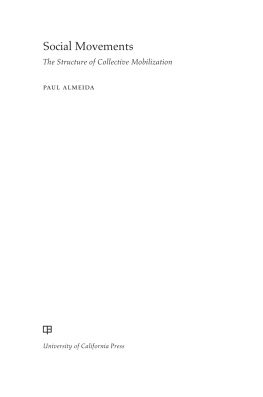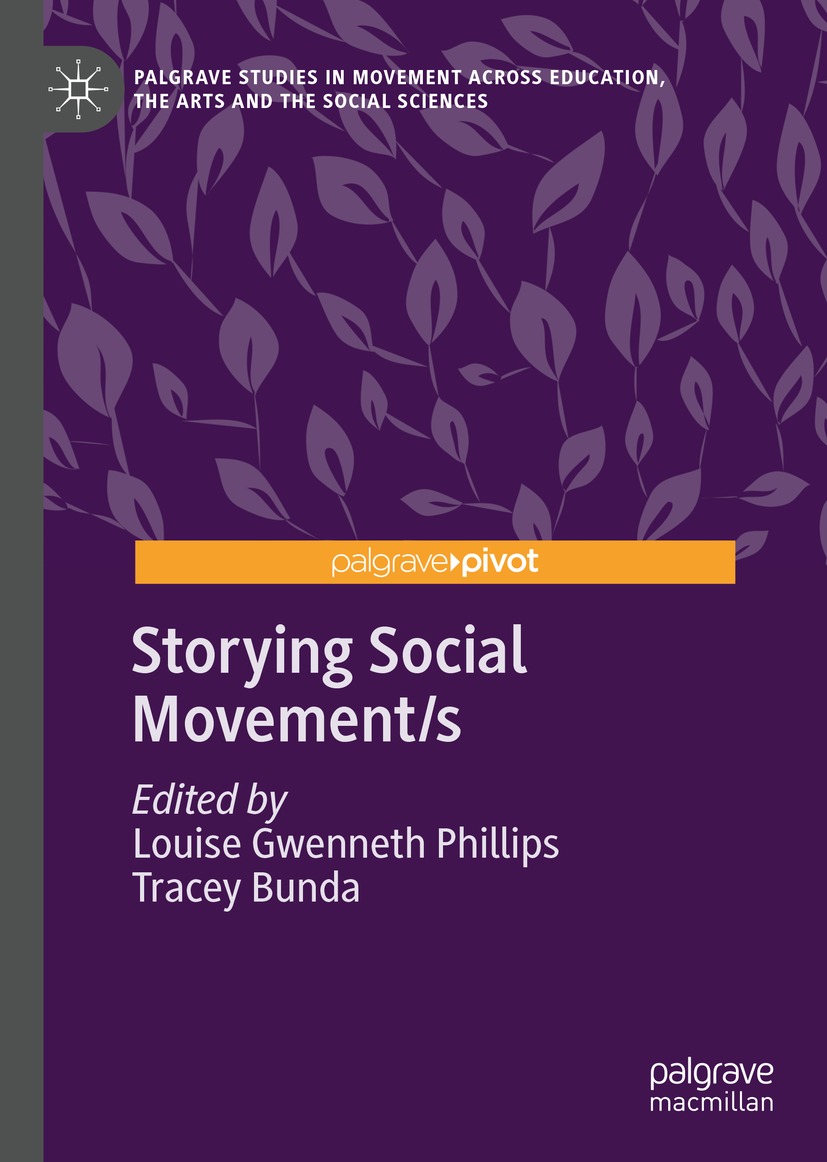Palgrave Studies in Movement across Education, the Arts and the Social Sciences
Series Editors
Alexandra Lasczik
Faculty of Education, Southern Cross University, Bilinga, QLD, Australia
Rita L. Irwin
Department of Curriculum & Pedagogy, The University of British Columbia, Vancouver, BC, Canada
This series is a new and innovative proposition in the nascent and growing space of movement studies. Emerging and established scholars who are beginning to work within the contemporary practices and methods of movement, seek resources such as this series seeks to provide. Education is very much tied up within an awareness of space and place, for example, a school can begin to take on an identity of its own, with as much learning taking place within its corridors and playgrounds as occurs in the classrooms. As learners interact with these environments through movement it is essential for researchers to understand how these experiences can be understood, allowing for a very interdisciplinary approach. This series specifically explores a range of movement approaches, including but not limited to walking research, a relatively new and exciting field, along with several other paradigmic lenses. The series will be commissioning in the Palgrave Pivot format.
Editors
Louise Gwenneth Phillips
Faculty of Education, Southern Cross University, Bilinga, QLD, Australia
Tracey Bunda
Aboriginal and Torres Strait Islander Studies Unit, University of Queensland, St Lucia, QLD, Australia
Palgrave Studies in Movement across Education, the Arts and the Social Sciences
ISBN 978-3-031-09666-2 e-ISBN 978-3-031-09667-9
https://doi.org/10.1007/978-3-031-09667-9
The Editor(s) (if applicable) and The Author(s), under exclusive license to Springer Nature Switzerland AG 2023
This work is subject to copyright. All rights are solely and exclusively licensed by the Publisher, whether the whole or part of the material is concerned, specifically the rights of translation, reprinting, reuse of illustrations, recitation, broadcasting, reproduction on microfilms or in any other physical way, and transmission or information storage and retrieval, electronic adaptation, computer software, or by similar or dissimilar methodology now known or hereafter developed.
The use of general descriptive names, registered names, trademarks, service marks, etc. in this publication does not imply, even in the absence of a specific statement, that such names are exempt from the relevant protective laws and regulations and therefore free for general use.
The publisher, the authors, and the editors are safe to assume that the advice and information in this book are believed to be true and accurate at the date of publication. Neither the publisher nor the authors or the editors give a warranty, expressed or implied, with respect to the material contained herein or for any errors or omissions that may have been made. The publisher remains neutral with regard to jurisdictional claims in published maps and institutional affiliations.
Cover illustration: Pattern Melisa Hasan
This Palgrave Macmillan imprint is published by the registered company Springer Nature Switzerland AG
The registered company address is: Gewerbestrasse 11, 6330 Cham, Switzerland
Foreword
Scholar activists need to write about our concerns, and the most powerful way to express ourselves is through our writings. Writing is a way to empower us, to state that we are not victims and that we are attempting to find answers and to solve problems. (Devon Abbott Mihesuah, P. 23)
This book contains chapters from an incredible group of activists who present their concepts, ideas, understandings, and specific events via their storying. It is they who have decided how and what would be written and re-written and what would be revealed and hence shared with others. Writing in this way enables us as readers a deeper understanding of the issues, events, and thinking behind the writing connecting the storyteller and the reader/listener and enabling meaning making by both. In essence, they bring forward the story of themselves as activists to the story of the activism.
As activist scholars they offer their individual unapologetic interpretations of events, theories, and understandings, and give testimony to their lives, along with the movements they are intimately engaged within. They present a montage of real struggles, and actions, and no one way to see or understand. It is their stories that form part of our learning, and for those who are activists, they offer deeper understandings and ways of working and combating complex problems within the world. While there are differences presented in their stories and in their activism, there are also similarities. Their collective work offers a greater understanding of scholar activists and demonstrates how much the role of activist is central to who they are as people, and the core of their very being. I am in awe!
Reference
Mihesuah, D. A. (2003). Indigenous American women: Decolonization, empowerment, activism (1st ed.). Nebraska Press.
Bronwyn Fredericks
Standing Foreword
What does it mean to stand up, stand against, stand with and stand for some-thing in this moment we find ourselves? What does it mean to be one who stands, one who under-stands, one who can with-stand and one who takes a stand? The stories in this book stand. They stand strong, they stand proud, they stand tall and they stand togetherstanding, anything becomes possible. These stories of standing are stories that we rarely hear. They are stories that we need to hearover and over again, until we have heard them. Standing, stories sneak up on truths we barely understand as we try to figure them out in order to make a cruel world a more just and bearable place. Standing, stories tell their own truths in their own way and those speaking the stories are never left standing on their own.
My maternal grandmothers family were coal miners in Cornwall, women who remained standing long after their husbands shoes were placed on the kitchen table. Still today, there is an unwritten rule in my house that new shoes are never to be stood on a table anywhere in the house, not least of all the kitchen. I asked my Mum recently where this custom had come from and she very proudly explained, Well, its all to do with your great grandfather, he was a Union man and a delegate to boot. I wish I knew more about my great grandfatherand my great grandmother, the story is that she too stood for justice but by standing by, with, for and up for the rights of women workers. This little-known story of standing stands strong in the blood and bones of my memory. It has stood the test of time and has often return to stand beside me in in my own work as a Unionist feminist in the National Tertiary Education Union (NTEU) of Australia. Standing: refusing to be a bystander even though you know the work is hard and your feet are going to hurt. Standing: holding your ground and position in places where the might and right of power and privilege push you right onto the edges of fear and precarity. Standing: an ethical and performative activist force which is not willing to keep on going with the flow, regardless of the risk. Standing: with a megaphone in your hand and heart negotiating the right to speak to make sure that others can. Standing: making a call and making a claim to something because standing there in that moment matters in ways we can only begin to imagine. Standing: because not standing is

